Following Bennett’s talks with Putin and Zelensky, Israeli officials say Russia has softened demands, but will likely double down on destructive assault if no capitulation
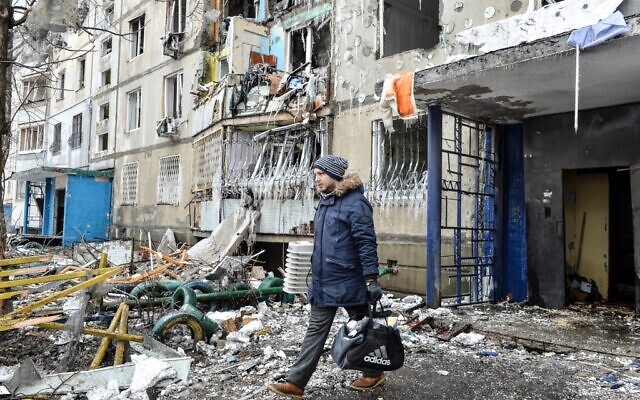
Israel believes Ukraine is at a critical crossroads and must decide between a “difficult” truce offer presented by Russia or risk a new, far more destructive phase in the war, reporters briefed by government officials said Tuesday.
Axios and Maariv both reported similar details on Prime Minister Naftali Bennett recent conversations with Russian President Vladimir Putin and Ukrainian President Volodymyr Zelensky, as he has attempted to mediate between the sides.
Bennett has reportedly not presented either leader with an Israeli ceasefire proposal, and is sufficing with passing along messages from one leader to the other, the officials said, crediting Bennett for helping clarify Putin’s position to Zelensky and the West.
Bennett has held a pair of conversations with both Putin and Ukrainian President Volodymyr Zelensky since he jetted to Moscow for a meeting with the Russian president on Saturday.
Israeli officials cited by both outlets said the sides have “softened” their stances: Russia, they said, will not demand regime change in Ukraine, and no longer wants the entire country demilitarized, but only the Donbas region in the east.
Meanwhile, Zelensky has told ABC News that he has “cooled down” regarding plans to join NATO.
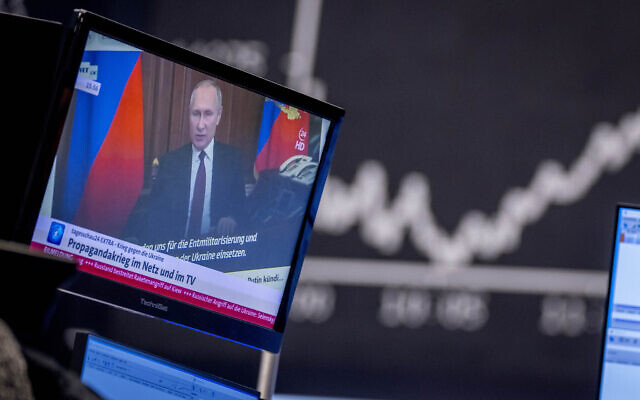
Officially, Moscow has said it will pull back troops immediately if Ukraine stops fighting, recognizes Crimea as Russian, passes legislation committing it to neutrality, which would keep it out of NATO, and recognizes the separatist areas of Donetsk and Lugansk as independent.
Zelensky has described the demands as going too far and indicated he does not trust Russia is negotiating in good faith.
“We are not ready for that capitulation because it’s not about me, this is about the people who elected me,” he told ABC.
Putin initially described the invasion as a “special operation” to protect the separatist Donbas region by “demilitarizing” and “denazifying” Ukraine.
Both the Tuesday night reports claimed Israel and the West have no intention to pressure Zelensky to make one choice or another, but they believe he now faces a stark decision: accept Russia’s demands, likely encounter intense public backlash and formally lose parts of his nation — or remain steadfast in his principled position against Russia, likely sparking a far bloodier phase of the war and bringing about much more destruction.
US officials quoted by CNN also believe Putin may ratchet up the offensive, which has already killed hundreds of civilians according to conservative estimates and sparked the largest exodus of refugees in Europe in decades.
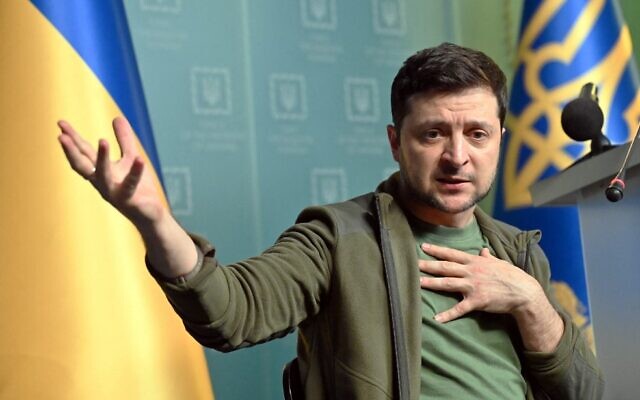
Maariv reported that Israel’s impression is that Putin is as determined as ever to achieve some sort of victory, and that a refusal of the Russian proposal by Ukraine will shut the door for good on negotiations as Putin doubles down on the military assault.
Zelensky said Tuesday he’d spoken to Bennett and thanked him for his efforts to mediate between Moscow and Kyiv. In an English-language tweet, Zelensky said that the two “discussed ways to end the war and violence.”
Talked to @naftalibennett. Thanked for Israel’s mediation efforts. Discussed ways to end the war and violence.
— Володимир Зеленський (@ZelenskyyUa) March 8, 2022
The Kremlin said Bennett had also spoken to Putin again.
The PMO has yet to release a statement on either call.
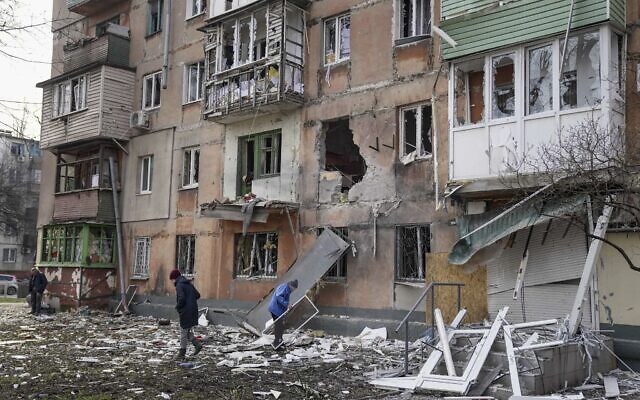
The Israeli premier visited Moscow for a meeting with Putin on Saturday, trying to help broker an end to the war. After meeting with Putin, Bennett spoke to Zelensky and French President Emmanuel Macron, and flew on to Germany for talks with Chancellor Olaf Scholz. Bennett also spoke to Putin by phone on Sunday.
Israel has had an up-and-down relationship with Ukraine since the start of Russia’s invasion on February 24. Zelensky reached out to Bennett early on, urging him to make use of Israel’s working relations with Kyiv and Moscow to mediate between the sides.
Bennett has attempted to do so, but his reluctance to directly criticize Moscow for its invasion — due, in part, to Russia’s control of Syria’s skies along Israel’s northern border — has incensed Kyiv and others.
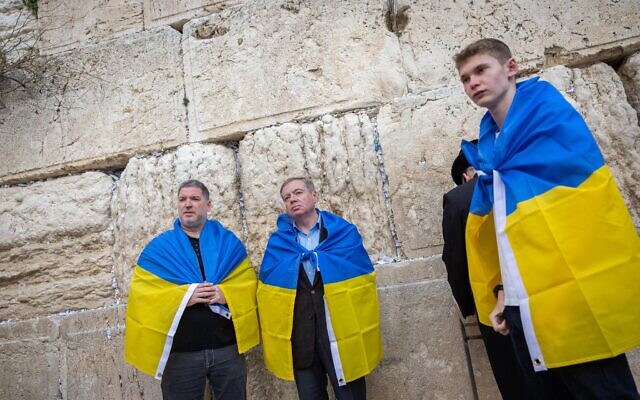
Ukrainian officials have thanked Israel for its mediation attempts as well as for sending humanitarian aid to civilians fleeing the country, but Zelensky also criticized Bennett last week, saying he felt the premier was not “wrapped in our flag,” a reference to a photo showing Israeli men wrapped in Ukrainian flags at the Western Wall, alongside the Ukrainian ambassador to Israel.
While Foreign Minister Yair Lapid has condemned the Russian invasion of Ukraine, Bennett has not done so. Israel declined a US request to sponsor a UN Security Council resolution condemning the invasion last month; it did support the subsequent General Assembly resolution to do so.
Kyiv’s ambassador to Israel has repeatedly lamented Israel’s refusal to send military protective gear for Ukrainian troops, let alone weaponry.
Israel sent “a stiff message” to Ukraine in the past day, protesting that it was being criticized by Kyiv even as it tries to mediate a deal, and saying that this situation was intolerable, Channel 12 news reported Tuesday.
As reported by The Times of Israel
